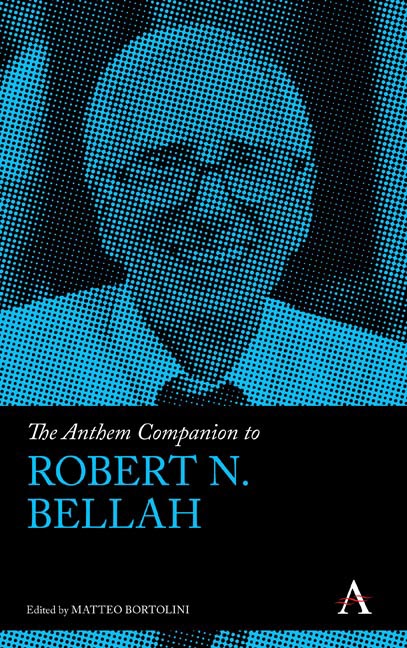Book contents
- Frontmatter
- Contents
- Notes on Contributors
- Introduction: On Being a Scholar and an Intellectual
- Part 1 Major Themes
- Part 2 Yesterday and Today
- Chapter 4 Broken Covenant Redux? Civil Religion in Crisis
- Chapter 5 Robert Bellah's Catholic Imagination
- Chapter 6 Habits of the Heart Revisited: American Individualism before and after the Communitarian Moment
- Part 3 Unexpected Masters
- Index
Chapter 4 - Broken Covenant Redux? Civil Religion in Crisis
from Part 2 - Yesterday and Today
Published online by Cambridge University Press: 06 July 2019
- Frontmatter
- Contents
- Notes on Contributors
- Introduction: On Being a Scholar and an Intellectual
- Part 1 Major Themes
- Part 2 Yesterday and Today
- Chapter 4 Broken Covenant Redux? Civil Religion in Crisis
- Chapter 5 Robert Bellah's Catholic Imagination
- Chapter 6 Habits of the Heart Revisited: American Individualism before and after the Communitarian Moment
- Part 3 Unexpected Masters
- Index
Summary
Robert Bellah's 1967 essay on American civil religion was written in a time of crisis but in a tone of hope. The crises were Jim Crow and Viet Nam. The hope was that America's “better angels” would ultimately triumph over its worst impulses— in Birmingham as well as in Saigon. The Broken Covenant, Bellah's 1975 book on American civil religion, was written in the wake of this crisis but in a tone of despair. Civil rights laws had been passed and the Viet Nam War had ended. But Nixon's “silent majority” was still in power and Falwell's “Moral Majority” was awakening. Bellah rightly worried that the civil religion was nothing more than “an empty and broken shell.”
My own writings on American civil religion are similarly bookended by moments of hope and despair. I began writing American Covenant in early 2008, during the headiest months of Barack Obama's hope- themed campaign for the presidency. With its echoes of Lincoln and King, the Obama campaign sometimes felt like a religious revival— a civil religious revival. America's better angels seemed to have been reborn, Phoenix- like, from Bellah's empty and broken shell. But American Covenant was not published until early 2017, in the despairing months following Donald Trump's surprise victory. That campaign not only distorted America's civil religious tradition; it broke with it altogether. Like Bellah, I now worry that the civil religion has been shattered— anew. Can it rise again? There are many reasons to be pessimistic. But there are also some grounds for hope.
This essay is in four parts. I begin by comparing my theory of civil religion with Bellah's. I argue that American civil religion (ACR) must be understood in relation to two other rival traditions: American religious nationalism (ARN) and American radical secularism (ARS). I then offer a brief sketch of the historical development of the ACR and its twin rivals. I argue that the ACR has become stronger in some ways but weaker in others while ARN and ARS have only grown stronger in recent decades. In the third section, I turn my attention to the present. I argue that Trumpism can be seen as a secularized version of ARN— and also as a complete repudiation of the ACR. I then compare and contrast Trumpism with other forms of conservative populism, highlighting a number of key similarities and differences.
- Type
- Chapter
- Information
- The Anthem Companion to Robert N. Bellah , pp. 99 - 126Publisher: Anthem PressPrint publication year: 2019



